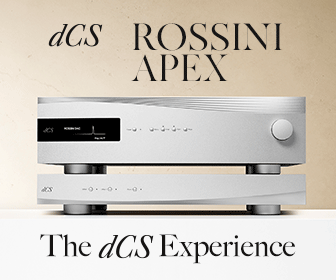Stereolab’s ‘Pulse Of The Early Brain (Switched On Volume 5)’ Rounds Up Rarities
As rare pieces of their back catalog continue to go up in price, this collection provides a varied set of less-obvious entry points into The Groop’s long career
It’s a bit hard to fathom, but Stereolab has now released almost as many compilations as it has original albums. Sure, there’s some crossover, but taken as a whole, all of the rarer material gathered across their Switched On series gives you the sense that during their initial 20-year run the Anglo-French outfit never left the studio .
The 3LP or 2CD Volume 5 sees Stereolab widening the lens somewhat and plucking tracks from various waypoints in their career. The first two sides reproduce the Simple Headphone Mind EP, their 1997 collaboration with noise experimentalist Nurse with Wound (aka Steven Stapleton). This is Stereolab at their drone-y and hypnotic best—carving a path back towards the motorik heyday of Neu! and other cosmic bands of the ’70s German underground. And both tracks, which are essentially Stapleton’s extended remixes of their “The Long Hair Of Death” split 7” with Yo La Tengo, are commendable approximations of that vibe.
Since the compilation isn’t ordered chronologically, side three dials backward to their 1992 Low Fi EP. Two years after their inception, this version of the band is still experiencing growth spurts (new drummer Andy Ramsay appears for the first time here as does the late vocalist Mary Hansen). Their edges haven’t yet been smoothed over and tracks like “[Varoom!]” and “Laisser-Faire” veer away from straight up song structure and instead come off like indie jams captured after one or two takes. Tim Gane’s guitars are rough and instead of silky analog synth lines, Stereolab lean heavily into the use of overdriven organ parts.
Jumping forward to side four, we find 2000’s “Robot Riot,” among of this collection’s handful of previously unreleased cuts. Originally recorded as one of two pieces commissioned to accompany the work of American sculptor Charles Long, it’s a classic slice of what most people will remember Stereolab for – driving, electronic-tinged space rock, layered over with singer Lætitia Sadier’s French lyrics. We then find both sides of the 2008 “Spool Of Collusion”/ ”Forensic Itch” 7”, albeit split by the 1998 track “Symbolic Logic Of Now!”, a jazz-inflected piece that sits link an incongruous hunk of French boudin between two elegant slices of brioche.
Demos, CD bonus tracks, and covers follow from there, and within that hodge podge, an extended version of “Plastic Mile,” later released in 2005 as an edited single, should be given special attention. It’s a moment where Stereolab pushes against the boundaries of their early years; the arrangement is more modern and involved, and the band seem confident about stretching melody lines way past conventional lengths and almost daring the listener to stay onboard.
On side six, we return near the fringes of where they allowed their sounds to travel. A nearly eight-minute 1998 Autechre remix takes the once serene “Refractions in the Plastic Pulse” and runs it through the Manchester producers’ glitch machine. You can be cynical and cast this as a bid for relevance with the post-rave kids, but at this time, Stereolab had no need to worry about their hipster credentials. Instead, excursions like this should be viewed as part of the band’s continued willingness to stake out terrain where their intentions could be pulled apart and examined under a different set of circumstances.
The word from inside Stereolab HQ is that this might be the last time they shake up the vault to see what falls out. The Pulse Of… collection was well-timed to support the band’s well-attended shows on both sides of the pond; in fact, it closes with a live version of “Cybele's Reverie”—their poppiest track by far—captured during a 2004 performance at the Hollywood Bowl. It’s surely a high-water mark and a reminder of the heights that band reached while a good chunk of the record buying public was fixated on Josh Groban’s flowing locks.
And sure, you might question the economy of giving an entire side of a triple-disc set to a single 10-minute track, or some of the herky jerky sequencing that follows, but Stereolab was rarely inclined towards convention. It was instead a band that always put a premium on collectability. So as their flexidiscs, split singles, and other rare pieces of their back catalog continue to go up in price, this particular collection does double duty as not only a vehicle for acquiring affordable, quality copies of these tracks, but also as a varied set of entry points into the band’s long career.
Issued in three different vinyl configurations (two of which are limited and numbered) and two CD packages, these 140g pressings offer revised color and clarity to the band’s sound. On tracks like “Spool of Collusion,” you can hear the broader range of definition, particularly in the bottom end, and the gritty guitar energy of a track like “ABC” benefits greatly from the added top end air that isn’t achieved on the digital side. My copy came with a couple of off-center labels, but each record was solidly flat.












































